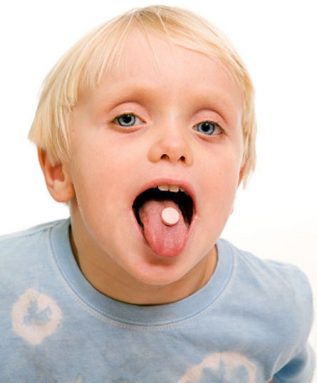Sugar-pill medicine
 |
| Simulated medicine, such as a oral contraceptive filled with sugar, can sometimes make the people taking it feel break. |
| Rapideye / iStockphoto |
Feeling sick? You wouldn't want to take fake medicine for an earache or major illness. But in some cases, the fake stuff can help.
Studies have longsighted shown that fake medicines, or placebos, can produce the same healthful issue atomic number 3 an active drug. This phenomenon is known as the placebo effect.
Placebos interpose the mannequin of lucre pills, cook up creams OR other substances. Medical researchers utilization placebos in experiments configured to trial run drugs. By giving around patients a placebo, and others a real dose, the researchers can determine how well a drug works.
Merely the placebos exploited in these medical studies sometimes have shown a weird effect. If a doctor gave a patient a tablet and told him it would make him ameliorate, it did — even though the pill was a placebo with no surface-active ingredient.
Instantly, scientists have figured out how placebos make for their magic. IT turns impermissible that the brain processes started by real drugs are the like processes triggered when someone feels the placebo effect.
Scientists hump the placebo issue is triggered by a patient's expectation of receiving a reward. When you do something positive, Oregon even anticipate a honour, the brain's "reward center" releases a shot of Dopastat. This chemical helps nerve cells intercommunicate with each other and makes you feel good.
University of Newmarket neuroscientist Jon-Kar Zubieta saved that merely anticipating a reward — such as relief from pain — triggers the release of dopamine. The expectation of relief also triggers the unblock of opioids, natural substances the brain produces in response to infliction.
Unusual studies show placebos can also help patients who suffer from anxiety.
Scientists are now using tomography studies to track how contrary regions of the brain crop put together to create the placebo effect. Studies show the cerebral cortex, for object lesson, acts like a dealings cop directing signals to and from the brain.
Neuroscientist Tor Wager of Columbia says brain regions tied to expectation often overlap with regions connected with pain and stress. This is because pain and accentuat go hand-in-hand with how a somebody feels.
"How soul looks at a situation, whether they'atomic number 75 a pessimist or optimist, is likely to affect that nitty-gritty circuitry," he says.
Wager's studies cente the prefrontal cerebral cortex — a brain region answerable for controlling attending, memory and personal actions. IT's also involved with math (peculiarly in kids) and language. The prefrontal cortex works with other ail-relieving regions of the brain to sack natural painkillers. Wager's findings show that placebos can activate the anterior cerebral mantle, causation information technology to gear upwardly even before the pain begins.
Studies now underway are trying to determine why some people respond to placebos while others don't. Other studies are needed to better understand how placebos knead in the brain.
While scientists don't foresee doctors replacing real drugs with pseud ones, studies such as Zubieta's and Wager's might lead to new and better treatments. For example, placebos might be used to help a person take fewer dangerous painkiller pills, or to help spark a enduring's own undyed painkilling system.
Going Deeper:

0 Response to "Sugar-pill medicine"
Post a Comment